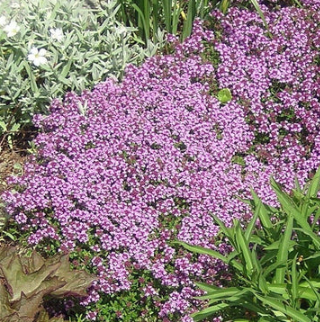If you’ve ever dreamed of having a lush, fragrant herb garden but can’t imagine spending your weekends elbow-deep in soil, you’re not alone. The good news? You don’t need to be a master gardener or have hours to spare. With just a few simple steps and the right tools, you can grow organic herb seeds right at home—even if you’re a self-proclaimed lazy gardener. This guide is for the busy, the beginners, and the “I’ll do it tomorrow” types who still want the joy (and flavor) of fresh herbs with minimal effort.
Why Organic Herb Seeds Are the Way to Go
Before we dive into the easy-peasy steps, let’s quickly talk about why choosing organic herb seeds matters. Organic seeds are produced without synthetic pesticides or genetically modified organisms (GMOs). This means cleaner, healthier herbs for your table and a gentler impact on the environment.
Plus, herbs grown from organic seeds tend to be more flavorful and nutrient-rich—because they’re cultivated in a way that respects soil health and biodiversity. And let’s be honest: if you’re going to grow anything, why not grow the best?
Set It and Forget It: 5 Lazy-Friendly Steps
1. Choose Easy-Grow Herbs (Start with the MVPs)
You don’t have to grow every herb under the sun. Stick to low-maintenance, high-reward varieties like:
- Basil – loves sun and water, perfect for container growing.
- Mint – practically grows itself (but keep it in a pot—it spreads fast!).
- Parsley – tolerant and hardy.
- Chives – slow and steady wins the race.
- Cilantro – quick sprouter, and perfect for windowsills.
These herbs are forgiving, versatile, and beginner-approved.
2. Pick the Right Containers
Skip the fancy stuff. Repurpose jars, yogurt cups, or get some inexpensive self-watering pots. The key is drainage—make sure whatever container you use has holes at the bottom. If you’re truly low-effort, consider grow bags or a pre-built windowsill herb kit.
3. Use Pre-Mixed Organic Potting Soil
Don’t mix your own soil if you don’t have to. Buy a high-quality organic potting mix specifically for herbs or vegetables. This saves time and ensures the right balance of nutrients, pH, and drainage.
Bonus lazy hack: sprinkle a little slow-release organic fertilizer into the soil before planting. Boom—you’re done feeding for weeks.
4. Water Smart, Not Hard
Herbs don’t like to be soaked; they prefer evenly moist soil. To avoid over- or under-watering, try this:
- Stick your finger in the soil—if it feels dry 1 inch down, it’s time to water.
- Use a spray bottle or watering can with a narrow spout.
- Set a phone reminder every 3–4 days if you’re forgetful.
Self-watering planters are also a great set-it-and-forget-it tool.
5. Find the Sweet Spot: Light & Location
Most herbs love sunlight—aim for 6–8 hours of direct sun a day. A bright windowsill, balcony, or kitchen ledge works beautifully. If sunlight is limited, consider a small grow light (they’re plug-and-play, super lazy-gardener-approved).
Order Smart, Not Hard
If going to a garden center sounds like a chore, simply order seeds online. Many trusted companies offer curated bundles like “kitchen herb sets” or “easy-grow organic herb seeds” that are perfect for beginners. Just make sure to check for organic certifications and read customer reviews.
Keep the Vibes Chill: Minimal Maintenance Tips
- Snip Regularly: Harvesting keeps herbs growing and prevents them from flowering.
- Rotate Pots: If one side’s getting leggy, give the pot a little spin every few days.
- Forget Pests: Herbs like rosemary and thyme are natural pest-repellents. Lazy win!
- Forgive Yourself: Missed a watering day? Plants are more resilient than you think.
Conclusion
You don’t need a green thumb, a backyard, or even a lot of motivation to grow a thriving mini herb garden. With just a few strategic choices—starting with organic herb seeds, using containers, and letting nature do the heavy lifting—you can enjoy fresh basil in your pasta, mint in your tea, and parsley on your plate with zero fuss. So go ahead, purchase the seeds. You’ll often find herb seeds for sale during the off-season, making it a budget-friendly hobby.



